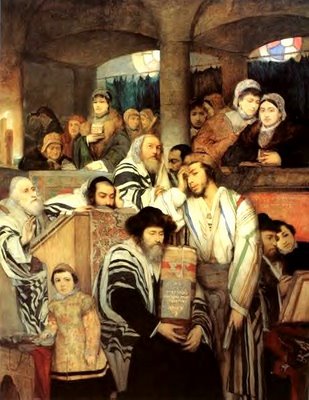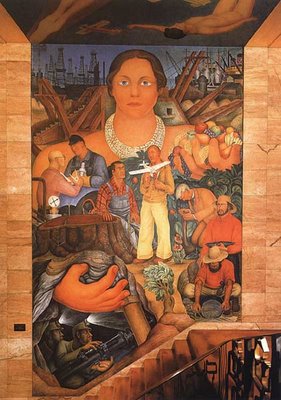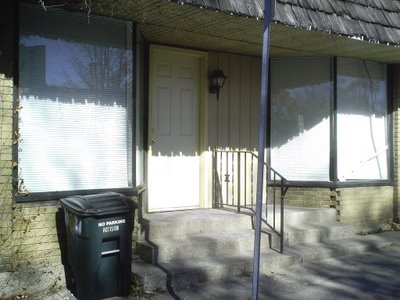
When you stand
You stand in your body and none other
For me
This flesh is home
I am coming down the lane
I am knocking on the door
I stretch out on the floor of my personal kingdom
The corners of the world are in my body
East and west are from finger to finger
Surely it is this flesh that saves me
This heart that teaches me

The mythic state is one in which the psychology and the geography are the same. When locomotion is attained through the heart and not the limbs, and vision transpires through the hands and feet, through los ovarios and the cajones then one has entered into the deep knowing and is in the mythic state.
Labels: The Mythic State
CHINGADA
There are two times where caregiving was the dominant theme. I will talk about the last first. I was a hospice volunteer. There are some people of a far more generous spirit who talk about how much they learn from this work, how they are really the ones helped out. Well, I suppose, but for me that caregiving was a one way street. I cared for you. You defecated on yourself until you died. I cared for you. You coughed up a lung. I think that when we hear the phrase “ethic of care” this is what we envisage, the one way street.
The most dominant phase of caregiving in my life was the period between transferring schools as an undergraduate when my paternal grandmother was diagnosed with bone cancer and came to live with us in a house that had two bedrooms, a living room and a kitchen, and then my maternal great aunt—who had raised me in place of a grandmother—was diagnosed with colon cancer and came to live with us too.
The ethic of care is divided by Tronto into attentiveness, responsibility, competence and the ability to respond. It is in the end, an ethic of paying attention to the world and the people around you. It is an ambiguous ethic not completely written down in words, but often in spirit and in paying attention to the moment.
The story should be told our fully to address who real care contrasts or agrees with theoretical care, and its suggested practice for society. My grandmother had never liked her son, my father, and wasn’t terribly fond of us. My mother spent a great deal of time bending over backward to be dutiful daughter-in-law to a woman she disliked and who disliked her. My father ran around trying to make her happy, doing special things which only annoyed her. They both annoyed her because in seeing a sick woman they were not seeing that she was the woman who had always been there: one who disliked us. To my father his duty was to be a charitable son who cared for his mother. My grandmother’s pleasure was to get away. In the end she actually called my father’s first wife who came from California and took her. My grandmother noted, as she climbed into the car that my father “abused her.” But what he tried to do was care and coddle for someone who did not care for him and did not wish to be coddled. Society said he should care for her and he was bound to do it no matter how much she herself was against it.

This crisis ended in my caring for my father—and let’s not go into who was caring for me. At the time my mother was in Chicago caring for her aunt—my dead grandmother’s sister. My aunt’s colon was removed, she had to use a smelly colostomy bag from then on. The apartment she owned was sold and she was taken from her home, in Chicago, in—yes—a ghetto to come to sunny South Bend and be cared for. In those last miserable months of the year, and of my aunt’s life, my mother was the same good martyr she always was. She and my father slept on the sofa bed (no one suggested that I give up my room) while my aunt had the master bedroom.
When I look back I see several things were happening. Up until then I’d been preparing to go to Notre Dame. After this experience I was determined to get the hell away from my family and care for myself. I was sure I could do a better job than my family. My aunt had been through miscarriage, abuse, three husbands and her lifelong neighborhood becoming a ghetto, but when my mother brought her here, with us, in a crowded house where she was no longer mistress, she worsened. She wasn’t used to having her niece or anyone else care for her and my mother, who has spent a lifetime working with the mentally retarded, still hasn’t learned how to treat someone under her care like an equal. I learned a great deal from my aunt in those last few months. I was having a horrible time in the classes I was taking, wanting to leave South Bend, needing a change, and she was wanting to leave and make that final change. She was my ally. I learned how listening leads to competence, how one has to give the person cared for what they ask for, what they really need. Not what you think they should want or need. The biggest part of caring is actually seeing who you are caring for.
This was the beginning of the end of the time when I really ever trusted my parents to get it right. This time in life marks when—regardless if I was living with them or not—I stopped depending on them in those big ways. A lesson here is that I did not become “independent” and do things completely on my own. I left the family unit, which was dying little by little and widened my circle. From now on caring and being cared for by others would be what mattered.
Someone told me that the people you ring in the New Year with are the people you will be with the entire year. So that New Year’s Eve I was with my best friends. We went outside and banged pots and pans at midnight and then came back inside. My aunt, who had been sleeping, complained of a pain and was taken to the hospital. That was the last time I saw her. I think I kissed her goodbye. We were both leaving the family.

Days of Awe
Yesterday I went to the river to perform tashlich. Going along the main street, past the museum you take a dip beneath the bridges like descending into the Great Mother and come out onto a park hidden from the city. The water below smells musty. I have used a ground pretzel for tashlich and the sky is bright blue ,full of sun, the bits of bread, like bits of gold scatter into the river and flow away. It is the second day of Rosh Hoshanah. I was supposed to do this on the first. Tashlich, the casting away of sin and bad fortune. But more, the casting away of the old self, the old year. And the giving of yourself to the river, to the earth, to the Mother, to God.
To begin the New Year, you must put away the old. To walk into joy and meet the beloved, you must atone, you must mend. From now until Yom Kippur are the Days of Awe, the new beginning.
Thursday I spent eight till one in the afternoon in the synagogue. Ancient words, sung from black pictures, yods and tittles traced on parchment, the letters of power given by God on Sinai. The cantor, wrapped in her tallis, chanting in my hears, the whole congregations swaying, a sea of yarmulkes, prayer shawls wrapped about shoulders. Now and again things go into English, but not often. The Ark opened, the Torahs, taken out, processed through shul to songs and shouts of joy.
Blessed art thou, Eternal our God, Sovereign of the Universe.
The shofar, blasted one hundred times, calling the soul to awake.
I board the bus yesterday and say to the driver, "Happy New Year." She says, "It's early for that." I say it is Rosh Hoshanah, that is, the Jewish New Year. She looks as if this smells bad to her, and says, "I don't know nothin' about that," which can be translated, "Nothing about that funny business." It is a funny business, a new fangled holiday by a funny people out of the mainstream. Is this a little how a Jew might feel in a place like this?
The bus driver is telling me about the pool house she wants to put up around her pool, and the money she wants to spend to do this and do that, and the lottery she would like to win, and this and that and the other. She is Christian. Like me. Like everyone else. Christianity is in the water here, the hard an ancient teaching diluted into superstitions, church on Sunday, and the phrase "Jesus saves," even though nobody knows anything about Jesus, or what he's supposed to be saving them from.

I do not know why I started writing. I am not entirely sure why I do it now. But I can tell you what the ritual is like, for it is a ritual. It is like splitting my head open and letting all the stars spill out. And in those stars are galaxies, planets, worlds. All through my lymph nodes, through my veins, through my senses are worlds. I tell their stories. Or they tell them through my fingertips, through my opening, panting mouth. Every story I tell is born in orgasm.
Okay, so I thought I was telling the story of the Midwest. That was my crazy desire. I thought—let me tell the story of this, my home. I did not know at the time that the land was alive, that Lady Indiana is Chaban, the Earth Mother, that her dirt is a living, sustaining thing, that she is the true Notre Dame, the real Our Lady, the encompassing mother under the earth. I did not know that she was the Woman of Dreams and Woman on the Wind and I did not know that somewhere in my flesh was her earth, in my desires her dream, in my breathing, her spirit. I did not know that we were one. At the time when I began to write I did not use the word storytelling. I did not know that these letters were magic letters, these words prophecies, that every story is a spell, a magic. I thought, “I am an eye. I am telling the stories of others.” I did not know that I was an I. That I was telling my story, that by telling it, I was becoming it. That by telling my story I was building me.

There is no me without the story.






